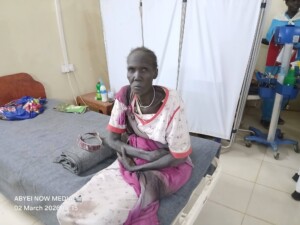‘Historic’ bilateral agreement signed between Sudan and USA
Sudan and the US signed a bilateral claims settlement on Friday to resolve “default judgements and claims based on allegations that Sudan’s prior regime supported acts of terrorism”.
 US Secretary of State Mike Pompeo meets Sudan's PM Abdallah Hamdok in Khartoum on August 25 (SUNA)
US Secretary of State Mike Pompeo meets Sudan's PM Abdallah Hamdok in Khartoum on August 25 (SUNA)
Sudan and the US signed a bilateral claims settlement on Friday to resolve “default judgements and claims based on allegations that Sudan’s prior regime supported acts of terrorism”.
According to the Sudanese Ministry of Justice, which issued a statement on Friday, the agreement stipulates that Sudan was not involved in any of these attacks, but accepted to address the claims as part of its effort to normalize relations with the US.
The agreement was signed at the US State Department in Washington DC and will enter into force after legislation is enacted. Sudan will pay $335 million, on top of approximately $72 million already paid, for distribution to victims of terrorism.
In exchange, the default judgments and claims against Sudan in US courts will be dismissed, and Sudan’s sovereign immunities under US law will be restored to those enjoyed by countries that have never been designated by the US as a State Sponsor of Terrorism (SST).
Upon signing the agreement, Minister of Justice, Nasredeen Abdulbari, said: “The Transitional Government greatly regrets that Sudan and its people must pay a significant sum of money to resolve default judgments and claims against the prior regime. This regret is especially acute given these times of economic despair in Sudan.”
Abdulbari also explained that today’s agreement allows Sudan and its people to resolve historical liabilities, restore normal relations with the US, and move forward toward democracy and better economic times. “Today’s agreement is an investment in a prosperous future for Sudan and its people.”
National emergency
The bilateral agreement follows US President Donald Trump’s announcement to congress that Sudan’s designation as an SST will be removed, in a move eagerly and cautiously awaited by Sudan. The agreement was called a “historic step” in the normalization of relations between Sudan and the US by the Ministry of Justice.
Also on Friday, Trump issued a statement in which he declared that the declaration of national emergency declared in Executive Order 13067 in 1997, as expanded by Executive Order 13400 in 2006, with respect to Sudan will continue. Despite recent positive developments, the crisis constituted by the actions and policies of Sudan "continue to pose an unusual and extraordinary threat to the national security and foreign policy of the US," according to the statement.
The US Embassy in Khartoum tweeted: "The extension of the national emergency is necessary to maintain UN sanctions related to actions in Darfur under the former regime, and in no way impacts the removal of Sudan from the SST list."
Israel
The official announcement of Sudan's removal from the list last week coincided with a joint statement by Sudan, the US, and Israel that the leaders agreed to the normalisation of relations between Sudan and Israel and “to end the state of belligerence between their nations.” The move has divided political parties in Sudan over the executive power of the Sovereign Council and the Council of Ministers to make such a decision.
Delegations from Sudan and Israel are scheduled to meet in the coming weeks to negotiate agreements for cooperation in the fields of agriculture, trade, economy, aviation, immigration and other issues to further the common interests of the two peoples.
*Article updated on November 2, 2020 at 17:00 to include details of US designation of national emergency with respect to Sudan
Radio Dabanga’s editorial independence means that we can continue to provide factual updates about political developments to Sudanese and international actors, educate people about how to avoid outbreaks of infectious diseases, and provide a window to the world for those in all corners of Sudan. Support Radio Dabanga for as little as €2.50, the equivalent of a cup of coffee.












 and then
and then